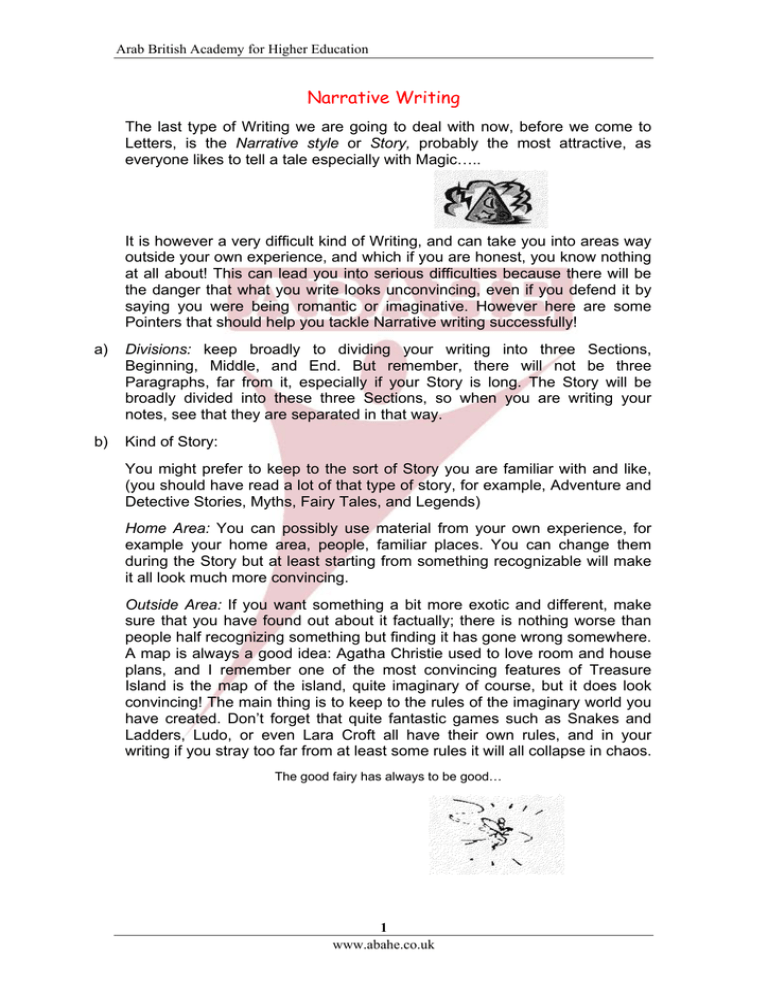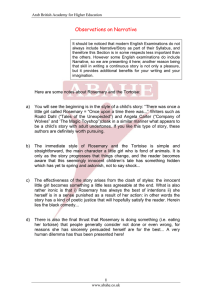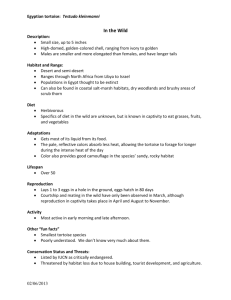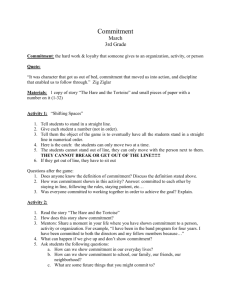
Arab British Academy for Higher Education
Narrative Writing
The last type of Writing we are going to deal with now, before we come to
Letters, is the Narrative style or Story, probably the most attractive, as
everyone likes to tell a tale especially with Magic…..
It is however a very difficult kind of Writing, and can take you into areas way
outside your own experience, and which if you are honest, you know nothing
at all about! This can lead you into serious difficulties because there will be
the danger that what you write looks unconvincing, even if you defend it by
saying you were being romantic or imaginative. However here are some
Pointers that should help you tackle Narrative writing successfully!
a)
Divisions: keep broadly to dividing your writing into three Sections,
Beginning, Middle, and End. But remember, there will not be three
Paragraphs, far from it, especially if your Story is long. The Story will be
broadly divided into these three Sections, so when you are writing your
notes, see that they are separated in that way.
b)
Kind of Story:
You might prefer to keep to the sort of Story you are familiar with and like,
(you should have read a lot of that type of story, for example, Adventure and
Detective Stories, Myths, Fairy Tales, and Legends)
Home Area: You can possibly use material from your own experience, for
example your home area, people, familiar places. You can change them
during the Story but at least starting from something recognizable will make
it all look much more convincing.
Outside Area: If you want something a bit more exotic and different, make
sure that you have found out about it factually; there is nothing worse than
people half recognizing something but finding it has gone wrong somewhere.
A map is always a good idea: Agatha Christie used to love room and house
plans, and I remember one of the most convincing features of Treasure
Island is the map of the island, quite imaginary of course, but it does look
convincing! The main thing is to keep to the rules of the imaginary world you
have created. Don’t forget that quite fantastic games such as Snakes and
Ladders, Ludo, or even Lara Croft all have their own rules, and in your
writing if you stray too far from at least some rules it will all collapse in chaos.
The good fairy has always to be good…
1
www.abahe.co.uk
Arab British Academy for Higher Education
Good - Good Wicked - Wicked: So what you have created has to behave in
a manner that is characteristic of its own nature: for example, a child would
be confused if a Wicked Witch suddenly, for no clear reason, stopped being
wicked; and the Good Fairy has always to be good or to coin a phrase that
wouldn’t be fair!
The main thing is to keep to the rules even of the imaginary world you have
created. Don’t forget that quite fantastic games have their own rules, and if
you stray too far from them the game will just collapse in chaos.
The Golden Rule: Either write any story within your own experience, or in a
way that you are very familiar with. To write as someone else or in a style
you are not really confident in is asking for trouble, and will almost certainly
come out as false and unconvincing.
On the whole writing should at least appear to be completely serious, even if
you would like to play for comedy. Comedy incidentally is the most difficult
writing of all, and what is funny to one person can be far from funny to
another! So unless you are very confident you can amuse with your writing it
is on the whole best to steer clear of comedy: to try to be funny and fail is
possibly the worst catastrophe of all!
But having said that, the Story that follows is at least intended to be funny though I have to say at the outset the comedy is somewhat black. It is
couched in the style of a children’s story but it has like many Tales of the
Unexpected, quite a sting in its tail... You -might try Roald Dahl’s stories with
that title: for example Lamb to the Slaughter is quite brilliant...
Funny? Or not Funny?
Read over the Story below, and the observations following. Then try the next
Activity:
Rosemary and the Tortoise
There was once a little girl called Rosemary who was very fond of animals.
In her garden she had a hutch with two pet rabbits, another with a hamster,
and indoors she had a dog and a cat. But she had never owned a tortoise.
On her eighth birthday her mother gave her a pet tortoise as a surprise.
Rosemary was delighted with her new pet and she spent a long time looking
at it, and wondering at its thick shell, its calm appearance, and its slow walk.
“You feed tortoises on lettuces,” her mother told her. “And in winter you put
them in a box so they can sleep.”
When the novelty had vanished, Rosemary became rather disappointed with
2
www.abahe.co.uk
Arab British Academy for Higher Education
her tortoise. After all it didn’t do much, just sort of looked at her with a beady
black eye. “But Mummy,” she said. “Can you tell me, what’s special about
tortoises? Why do people have them as pets?” “Well,” said her mother.
“They’re very good in the garden as they eat slugs.” “Hmm!” said Rosemary.
“Anything else?” “They grow to be very old.”
That was a new idea to Rosemary and she went away to think about it. She
now saw a tortoise differently somehow, and the idea of an old tortoise, one
who might outlive her even, this definitely appealed to her.
The years went by and Rosemary grew up. Long ago her pets had died, all
except her tortoise. It carried on living and looked much the same as ever.
Every day without fail Rosemary would go into the garden to look at her pet,
and being a conscientious person she never forgot to feed it.
Many more years passed, and Rosemary grew very old. She’d never
married, and most of her friends had died. But she was not really alone
because she still had her tortoise. Even though Rosemary was old and
shaky, it continued much the same, calm, wise, and slow.
But at last Rosemary knew she couldn’t live much longer. When she realized
this, she had a sudden fear. What was going to happen to her pet when it
was left on its own? Rosemary had few friends, and nobody she could really
trust. She looked through the window out onto the lawn where even now the
creature was slowly crawling, and a chill went to her heart. When she died,
what would happen to her tortoise?
During the next few days, Rosemary thought and thought, and increasingly
her anxiety grew. Till suddenly she had a brilliant idea. She would kill her
tortoise (painlessly of course), and that way she need worry no more about
its future.
And that is what Rosemary did; and she ate her tortoise for her Sunday
lunch. The idea of cremating her pet had never appealed to her; far more
sensible for it to provide the owner with nourishment, especially in these
expensive days. And as she ate, Rosemary felt she had done a really good
deed. Her tortoise would not miss her, it had enjoyed a long and healthy life,
and even helped its owner in the battle for survival.. What more could a
tortoise want? It had died happy, and the old lady had no more worries for its
future.
There’s a postscript to this tale; Rosemary didn’t outlive the tortoise by very
long. Not that she minded. After all, life without her pet wasn’t terribly
appealing. But she did rather object to those nasty stomach pains.
(590 Words)
3
www.abahe.co.uk
Arab British Academy for Higher Education
All Rights Reserved © Arab British Academy for Higher Education
4
www.abahe.co.uk








